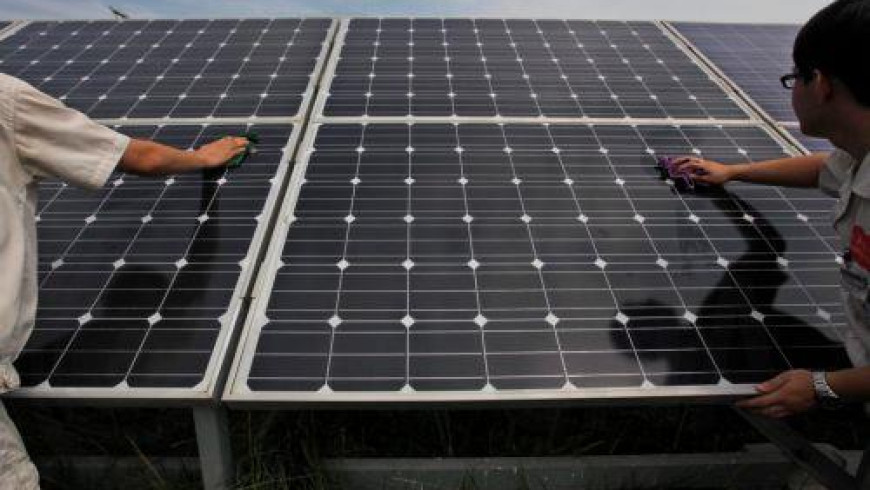The Cyprus Electricity Authority faces a default risk and warned consumers with disruption of supply in case of non-payment.
According to a statement of the Authority, the recent economic developments have brought about a significant deterioration in the liquidity of the Electricity Authority since banks have withdrawn overdraft facility, while a significant reduction above 20%, has been observed in the selling of electricity, which affects negatively not only the liquidity but also the economic viability of EAC.
Liquidity problems in EAC have been boosted by the fact that with the recent closure of the banks, EAC decided not to interrupt the power supply to customers for nonpayment. This action was designed to facilitate customers in an unsettled period in which they had no access to their bank accounts.
As stressed, the liquidity problems have brought EAC in a difficult position with regard to the fulfillment of its own financial obligations. This is why it appeals to all customers whose bills have not been paid and has passed the last maturity date, to repay these bills to enable the Authority to respond to its own obligations, some of which relate to payments that can not qualify for deferral, as are fuel payments.
In cases of non-payment, EAC will have no choice but to resume soon interruptions in power.
The Authority is elaborating a plan for further reductions in operating costs and a series of recommendations that can reduce the costs of the Authority for the benefit of consumers.
A memorandum will be submitted soon to the state and other competent institutions.
The statement also refers to the commitment of the Cyprus Energy Regulatory Authority (CERA) and EAC to examine the possibility of further emergency reduction in the price of electricity.
The Authority submitted reports to CERA. Eventually, CERA on 12 April 2013 decided an extraordinary cut of 5% on all basic tariffs for a period of two months.
This reduction comes in the wake of the recent, early removal of the extraordinary increase of 5.75% for the increased fuel costs after the destruction of Vassilikos Power Station as well as the reduction of power tariffs by around 3.5% (depending on the tariff) resulting from the change in the rate of fuel clause in early 2013. Overall since the beginning of 2013 electricity prices fell about 13%.
The aim of the latter decline is to financially support both residential and commercial and industrial consumers, contributing to the general effort to lift the economy.
According to a statement of the Authority, the recent economic developments have brought about a significant deterioration in the liquidity of the Electricity Authority since banks have withdrawn overdraft facility, while a significant reduction above 20%, has been observed in the selling of electricity, which affects negatively not only the liquidity but also the economic viability of EAC.
Liquidity problems in EAC have been boosted by the fact that with the recent closure of the banks, EAC decided not to interrupt the power supply to customers for nonpayment. This action was designed to facilitate customers in an unsettled period in which they had no access to their bank accounts.
As stressed, the liquidity problems have brought EAC in a difficult position with regard to the fulfillment of its own financial obligations. This is why it appeals to all customers whose bills have not been paid and has passed the last maturity date, to repay these bills to enable the Authority to respond to its own obligations, some of which relate to payments that can not qualify for deferral, as are fuel payments.
In cases of non-payment, EAC will have no choice but to resume soon interruptions in power.
The Authority is elaborating a plan for further reductions in operating costs and a series of recommendations that can reduce the costs of the Authority for the benefit of consumers.
A memorandum will be submitted soon to the state and other competent institutions.
The statement also refers to the commitment of the Cyprus Energy Regulatory Authority (CERA) and EAC to examine the possibility of further emergency reduction in the price of electricity.
The Authority submitted reports to CERA. Eventually, CERA on 12 April 2013 decided an extraordinary cut of 5% on all basic tariffs for a period of two months.
This reduction comes in the wake of the recent, early removal of the extraordinary increase of 5.75% for the increased fuel costs after the destruction of Vassilikos Power Station as well as the reduction of power tariffs by around 3.5% (depending on the tariff) resulting from the change in the rate of fuel clause in early 2013. Overall since the beginning of 2013 electricity prices fell about 13%.
The aim of the latter decline is to financially support both residential and commercial and industrial consumers, contributing to the general effort to lift the economy.













 3287.99
3287.99 1275.09
1275.09
